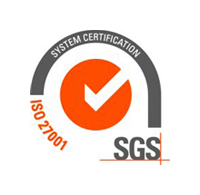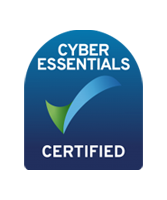The 2020 Lockdown has presented companies with numerous challenges, but for one part of the Integrity Print business it provided the platform for the final stage of a significant transformation process that led to the emergence of Integrity Connect. This is the new name for the secure laser and mailing division of Integrity.
The journey began in the summer of 2018 with an acknowledgment that, although sales in the mailing division had grown steadily and profitably to £4m turnover, the company was unable to compete effectively with the market leaders in the sector. The business strategy was to accelerate growth to £10m turnover by 2022 and in order to achieve this, there was a need to radically re-shape the division.
Integrity had managed its transactional division using the disciplines and processes that had historically allowed it to run a successful business forms operation. The company used the same people, the same back office systems and the same shift patterns that were applied across its traditional litho print operations. Mark Cornford, Managing Director of Integrity commented: “I was incredibly proud of what we had achieved in our transactional business. We had grown from zero to £4m through sheer hard work and determination. We were good all-rounders but to be the best in your field, you need the best people”
A key first step in the transformation process was the recruitment of Chris Walton, formerly Managing Director of Paragon’s Bristol mailing operation, as Transactional Director. Walton brought with him 25 years of print and mail experience and had been an early adopter of inkjet in the transactional market space.
When asked for his first impressions he said “It wasn’t what I was used to and did feel like a bit of a step back in time. The business had outgrown its existing capabilities and needed to invest in its equipment and processes. But there was an energy about the people and huge ambition from the management team that really excited me. It was a fantastic opportunity to get involved and help deliver a step change in the business offering”
Walton was able to share with the team his vision for the transformation process that would lead to Integrity Connect. He knew from experience the demands of the customers that Connect would have to win to meet the growth targets. It was a case of developing the right culture, processes and equipment that would deliver against these expectations.
The culture change has been driven by a restructuring of the management of the department with a focus on quality control and data collection. Machine outputs and overall shift performances are consistently measured while more visible management on the shop floor was focused on reacting early and communicating clearly with regard to any potential production issues.
There was also more focus on the training and development of individual skills. Historically recruitment was from within, redeploying staff from litho presses and collators to train up on lasers and enclosing lines. The team was strengthened by the recruitment of two experienced enclosing operators who brought a fresh perspective and understanding of client expectations.
External expertise was also used, with two experienced professionals brought in for a six-month consultancy to help evaluate and re-write all of the print and mail and quality processes, and to mentor and nurture the operations and account management teams.
A high bar was being set, with measurable targets, individual accountability, and operational transparency. Staff were responding to the challenge but felt held back by the working environment and the unreliability of equipment that was coming to the end of its working life.
The next stage of the transformation was a critical one, the foundation was in place, the team knew what was expected from them; they now needed the tools to do the job.
A major equipment review took place, looking at what technology the market had to offer, that ultimately led to a strategic partnership with Canon. After extensive testing and reviewing what capacity was needed to meet the £10m turnover target the decision was made to invest in both cut sheet and continuous inkjet solutions. Three cut sheet lasers and two continuous lasers would be replaced with a Canon i300 Varioprint and a Canon 6700 Colourstream. In addition, a new Nipson Digiflex mono continuous laser was added to the portfolio to support the production of integrated label work, and a Xerox Nuvera MICR laser retained to handle cheque work.
The majority of the new equipment was installed during the Lockdown which actually was an advantage, allowing the team at Integrity time to rationalise the layout of the shopfloor. The production staff were able to switch to flexible shift patterns to effectively manage workflow and training requirements. The first machine to be installed, the Canon i300 cut sheet inkjet, was able to absorb a huge amount of work very quickly to facilitate the rest of the installation process. Overall, the business now has significantly improved production processes with dedicated rooms for printing, enclosing and postal despatch.
In addition to operational changes the breathing space created by Lockdown also allowed the development of the broader support team, with two members of the team qualifying as Prince 2 Project Managers to support the implementation of complex new contracts. The Planning, Software Development and Account management teams were all strengthened in line with the planned growth trajectory.
Commenting on the changes Walton says “We have emerged from Lockdown in incredibly good shape. We have rebalanced the shift patterns and the people are now achieving much greater productivity levels and getting the most out of the new kit. The inkjets are absolute game changers for us, giving us the capacity to produce over 50 million colour images every week.”
The increase in capacity is very timely as the print and mail business is bouncing back post Lockdown with new contract wins and a huge growth in the Clarity Mail business that supports clients who have been working from home.
The move to rebrand as Integrity Connect also reflects the changing services being offered by Integrity as they enable clients to face the challenges of digital transformation and the need to channel shift communications away from traditional print. Andrew Law, Sales & Marketing Director, commented, “The conversations I am having with customers now revolve around how we can help them automate document workflows, provide more personalised communications, integrate online and mobile channels and generally take away business pain for them. As an example, we are setting up a Virtual Post room for one client, because that is what they need now 75% of their staff work from home and can’t handle mail in the way they used to. Print still forms a key part of our clients’ needs but increasingly they look to us to solve a whole range of business challenges around both inbound and outbound communications.”
2020 has been a pivotal year for Integrity. The long-standing ambition to develop and grow into a major player in the print and mail sector has been supported by significant investment in leading edge technology. However, it is the changes in culture that have made ambition a reality. Rebranding to Connect is proving to be much more than just a name change – Integrity Connect embodies the new direction, the new capabilities and most importantly the underlying belief and vitality that has emerged post Lockdown.
Integrity Connect is a client led business that enables organisations to both connect and communicate with their customers and stakeholders efficiently and effectively across a range of channels. The culture is one of solving business challenges, encouraging interaction with the Connect team to build strong relationships and giving clients a real choice in a sector dominated by large corporations.
With a dynamic and diverse range of services to offer, Connect has now truly emerged into the marketplace as a fully-fledged digital customer communications provider.






